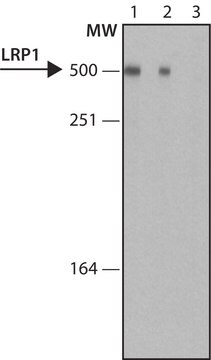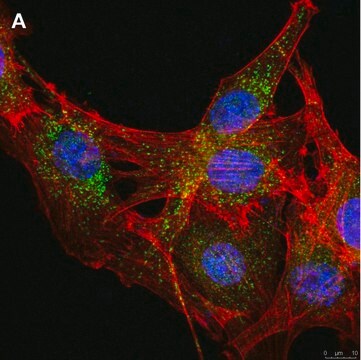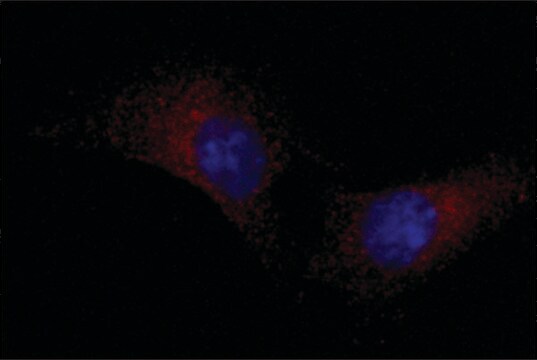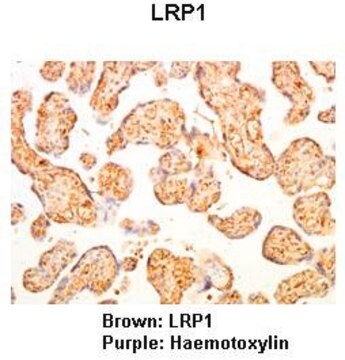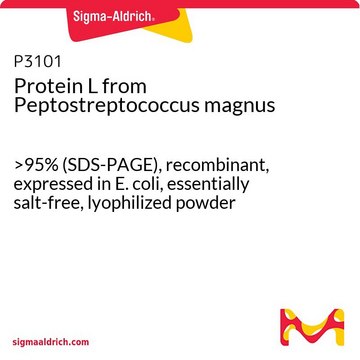MABS2001M
Anti-LRP-1 Antibody, clone 11H4
clone 11H4, from mouse
Synonym(s):
Prolow-density lipoprotein receptor-related protein 1, Alpha-2-macroglobulin receptor1, A2MR, Apolipoprotein E receptor, APOER, CD91
About This Item
Recommended Products
biological source
mouse
Quality Level
antibody form
purified antibody
antibody product type
primary antibodies
clone
11H4, monoclonal
species reactivity
rat, mouse, human
packaging
antibody small pack of 25 μg
technique(s)
immunocytochemistry: suitable
immunohistochemistry: suitable (paraffin)
immunoprecipitation (IP): suitable
western blot: suitable
isotype
IgG1κ
NCBI accession no.
UniProt accession no.
target post-translational modification
unmodified
Gene Information
human ... LRP1(4035)
General description
Specificity
Immunogen
Application
Immunoprecipitation Analysis: A representative lot detected LRP-1 in Immunoprecipitation applications (Nieves, E.C., et. al. (2010). J Biol Chem. 285(17):12595-603).
Western Blotting Analysis: A representative lot detected LRP-1 in Western Blotting applications (Spoelgen, R., et. al. (2009). Neuroscience. 158(4):1460-8; Lleó, A., et. al. (2005). J Biol Chem. 280(29):27303-9; Campana, W.M., et. al. (2006). J Nuerosci. 26(43):11197-207).
Immunocytochemistry Analysis: A representative lot detected LRP-1 in Immunocytochemistry applications (Lleó, A., et. al. (2005). J Biol Chem. 280(29):27303-9).
Immunohistochemistry Analysis: A representative lot detected LRP-1 in Immunohistochemistry applications (Campana, W.M., et. al. (2006). J Nuerosci. 26(43):11197-207).
Signaling
Quality
Immunohistochemistry Analysis: A 1:50 dilution of this antibody detected LRP-1 in human brain tissue.
Target description
Physical form
Storage and Stability
Other Notes
Disclaimer
Not finding the right product?
Try our Product Selector Tool.
Storage Class Code
12 - Non Combustible Liquids
WGK
WGK 1
Flash Point(F)
Not applicable
Flash Point(C)
Not applicable
Regulatory Listings
Regulatory Listings are mainly provided for chemical products. Only limited information can be provided here for non-chemical products. No entry means none of the components are listed. It is the user’s obligation to ensure the safe and legal use of the product.
JAN Code
MABS2001:
MABS2001-25UG:
Certificates of Analysis (COA)
Search for Certificates of Analysis (COA) by entering the products Lot/Batch Number. Lot and Batch Numbers can be found on a product’s label following the words ‘Lot’ or ‘Batch’.
Already Own This Product?
Find documentation for the products that you have recently purchased in the Document Library.
Our team of scientists has experience in all areas of research including Life Science, Material Science, Chemical Synthesis, Chromatography, Analytical and many others.
Contact Technical Service
